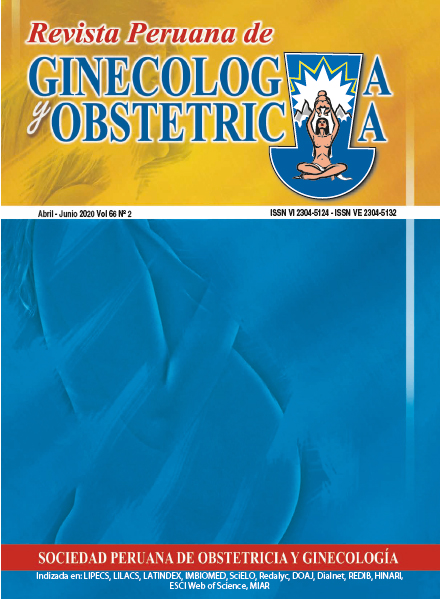Invasive hydatidiform mole coexistent with normal fetus. Case report
DOI:
https://doi.org/10.31403/rpgo.v66i2253Keywords:
Pregnancy, Hydatidiform mole, Invasive, FetusAbstract
We report the case of a pregnant woman referred to our hospital for suspected partial hydatidiform mole. Ultrasound images showed a normal fetus attached to a small placenta adjacent to a honeycomb-like tumor mass. Amniocentesis revealed a normal karyotype. Due to β-hCG values greater than 800 000 IU and a mass growth of 11% by magnetic resonance imaging, an ultrasound-guided percutaneous tumor biopsy was performed; it ruled out the possibility of choriocarcinoma. The patient had symptoms of hyperthyroidism that required treatment; when the β-HCG levels exceeded one million IU, a course of chemotherapy was prescribed. At 29 weeks, the patient started labor; a cesarean hysterectomy was performed, obtaining a live newborn with Apgar 5 and 7. The pathology report informed the placental mass as an invasive mole. According to our literature search, this is the first case report where an invasive mole coexisted with a healthy fetus. We highlight the importance of using all diagnostic and management tools necessary to achieve fetal viability, without increasing the maternal risk of complications.Downloads
Download data is not yet available.
Downloads
Published
2020-06-11
How to Cite
Tipiani Rodríguez, O., Solís Sosa, C., Valdez Alegría, G. E., Quenaya Rodríguez, R. J., Escalante Jibaja, R., Cevallos Pacheco, C., Ibarra Lavado, O., & Bocanegra Becerra, Y. L. (2020). Invasive hydatidiform mole coexistent with normal fetus. Case report. The Peruvian Journal of Gynecology and Obstetrics, 66(2). https://doi.org/10.31403/rpgo.v66i2253
Issue
Section
Casos Clínicos
















